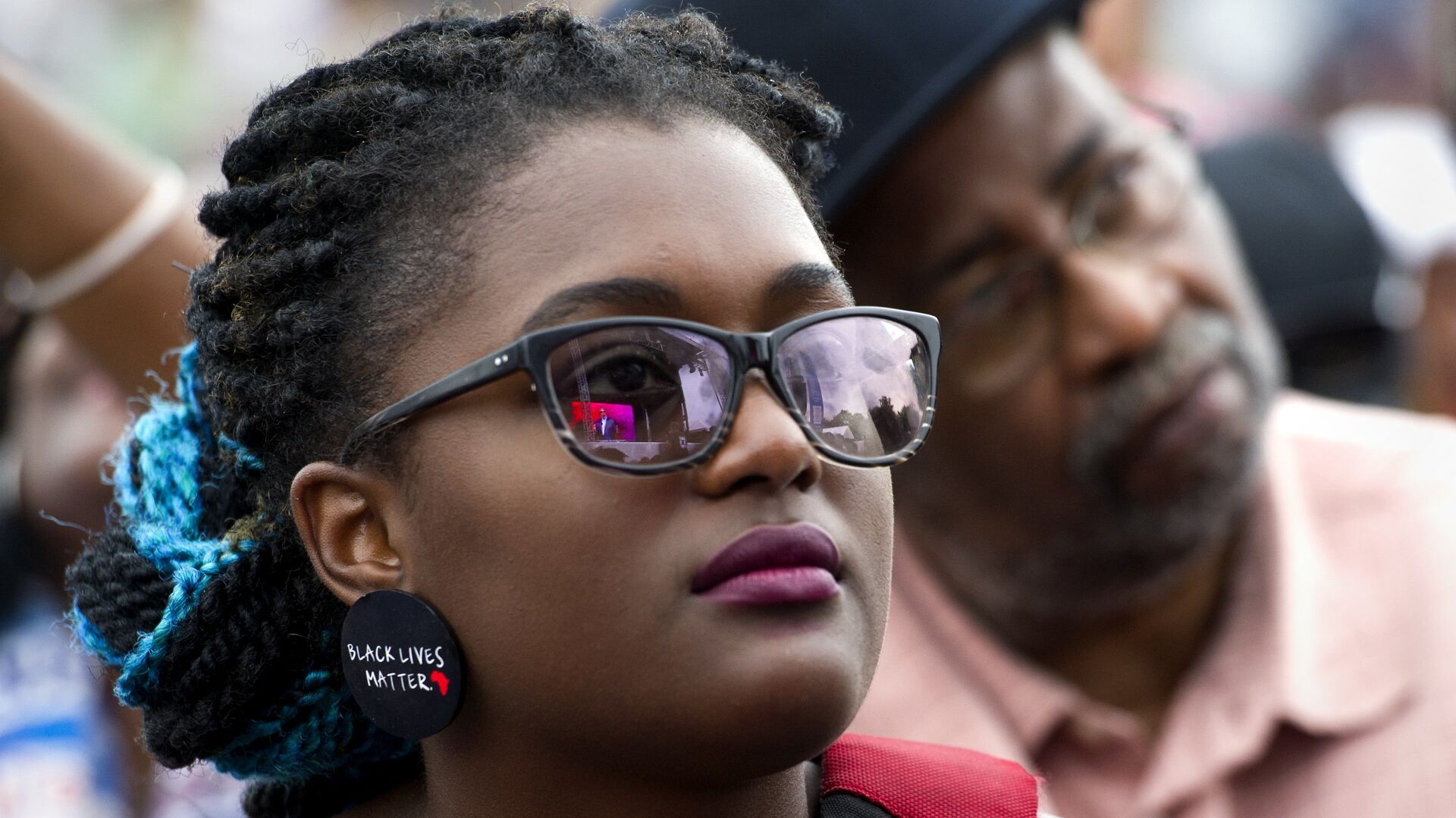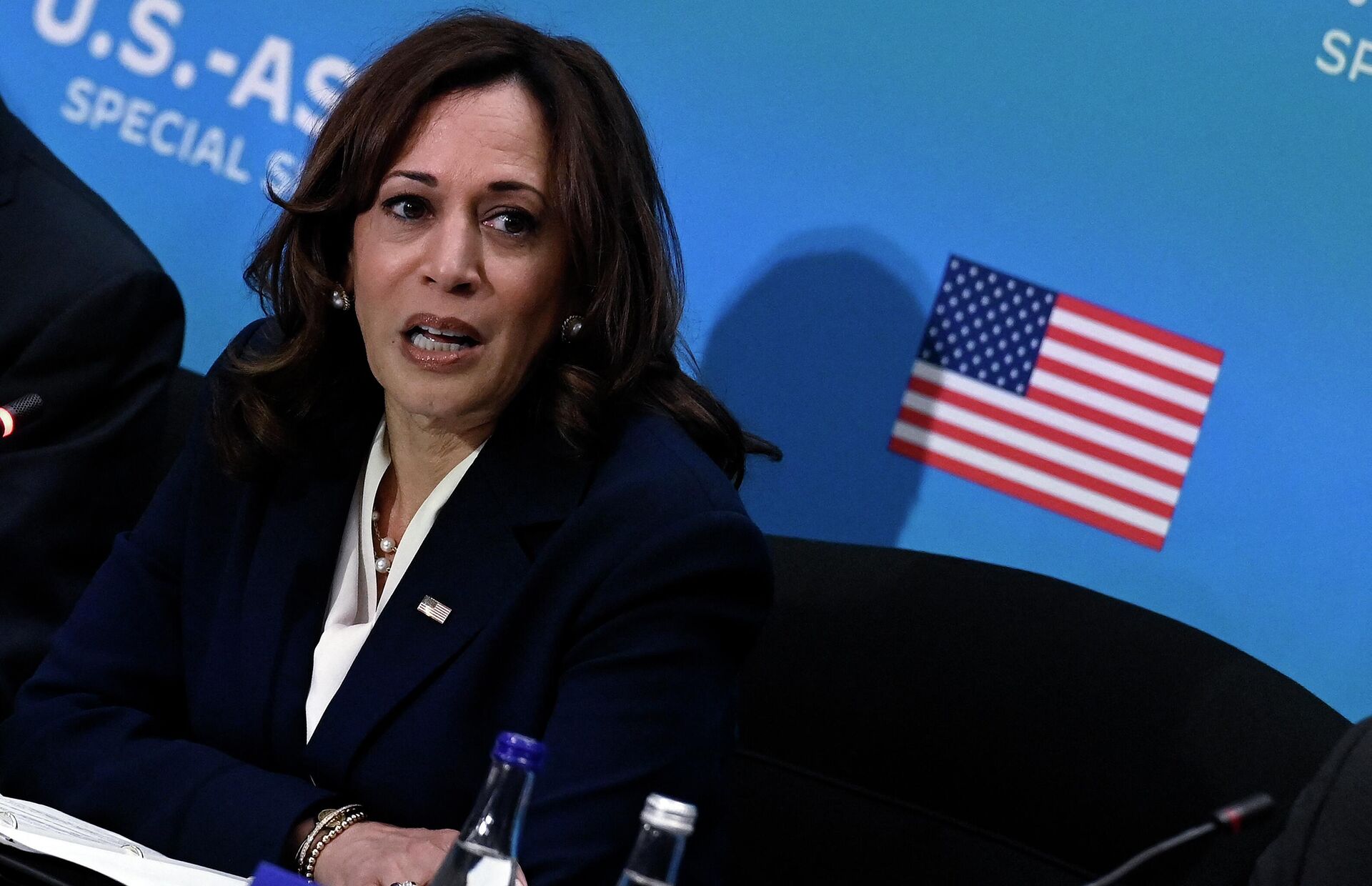'Blaxit': Black Staffers Leaving the White House While African Americans Increasingly Disenchanted

© AP Photo / Cliff Owen
Subscribe
The US government is seeing an exodus of Black staff members, dubbed by some as "blaxit". At least 21 African American employees have left or are planning to leave the White House since 2021, according to Politico.
"We’re here and we’re doing a lot of work but we’re not decision-makers and there’s no real path towards becoming decision-makers," a current African American White House official told Politico on condition of anonymity. "There is no real feedback and there’s no clear path to any kind of promotions."
The first big exit from the White House occurred in December 2021 when Vice President Kamala Harris’ chief spokesperson Symone Sanders announced she was leaving, according to the media outlet. Harris’ senior aides Tina Flournoy, Ashley Etienne and Vincent Evans, as well as Public Engagement Head Cedric Richmond quickly followed suit.
Since, public engagement aide Carissa Smith, gender policy aide Kalisha Dessources Figures, National Security Council Senior Director Linda Etim, Digital Engagement Director Cameron Trimble, associate counsel Funmi Olorunnipa Badejo, as well as Chief-of-Staff Ron Klain’s advisers Elizabeth Wilkins and Niyat Mulugheta, Press Assistant Natalie Austin, National Economic Council aides Joelle Gamble and Connor Maxwell, and presidential personnel aides Danielle Okai, Reggie Greer and Rayshawn Dyson have all resigned as well.
Moreover, the exodus of Black employees is likely to continue in coming weeks, Politico noted citing White House officials.
According to the media outlet, some staffers were leaving to pursue better career opportunities or to spend more time with their families. There were, however, rumours that a number of former employees left due to a "toxic workplace atmosphere" in the administration.

(FILES) In this file photo taken on May 13, 2022, US Vice President Kamala Harris speaks as she meets with the leaders of ASEAN countries, members of the Cabinet, and other Administration officials to discuss climate action, clean energy, and sustainable infrastructure, during the US-ASEAN Special Summit at the State Department in Washington, DC.
© AFP 2023 / OLIVIER DOULIERY
In December 2021, The New York Times quoted Harris' allies complaining that the first Black US vice-president was treated as an afterthought in Joe Biden's White House. According to them, the veep was frequently side-lined in discussions and decision-making, or not mentioned in the White House's press releases.
"There is a double standard; it’s sadly alive and well," former Secretary of State Hillary Clinton added in comments to the NYT in December 2021.
Speaking recently to Politico, one of the current African American White House officials noted that even though the Biden administration "brought in a tonne of Black people," it failed to create an "infrastructure to retain them or help them be successful."
"If there is no clear infrastructure of how to be successful, you become just as invisible in this space than you would be if you were not in it," the staffer told Politico.
Apparently, the departure of public engagement head Cedric Richmond, who was seen as "big brother" and "the voice of those folks" made some other African American staffers frustrated and nervous.
While the White House pushed back on those concerns, emphasising that around 14% of current employees identify as Black, external observers suggest that the trend is worrisome.
"I have heard about an exodus of Black staffers from the White House - ‘Blaxit’ - and I am concerned", said Spencer Overton, president of the Joint Center for Political and Economic Studies, as quoted by the media outlet. "Black voters accounted for 22 percent of President Biden’s voters in November 2020."
Simultaneously, some pollsters have concluded that despite African Americans helping Joe Biden get elected in 2020, their support for the US president has been waning, especially over the botched Afghanistan withdrawal, US southern border crisis, soaring inflation and a looming recession.
The president's approval rating among Black voters saw the first double-digit drop at the beginning of 2022 falling from 86 percent to 76 percent between January 2021 and 2022, according to Navigator Research.
An April 2022 poll carried out by NPR/PBS NewsHour/Marist indicated that roughly 67% of Black voters said they like the job Biden is doing.
A new poll conducted by Harvard CAPS-Harris on 18-19 May showed more peculiar trends. While 67% of African American voters believe Joe Biden is mentally fit to serve as US president, 33% have doubts about his fitness. At the same time, 50% of Black voters said Biden is "showing he is too old to be president."
When it comes to gun violence, 43% of African Americans believe that the president uses shootings for political advantage and not to unite the country.
In general, Biden's numbers are now fluctuating between 41% and 34%. According to the recent Reuters-Ipsos survey, a total of 45% of non-white voters approve of the president, while 51% disapprove.


